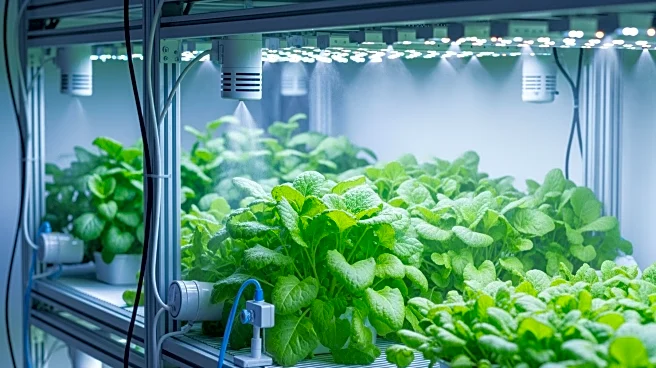What's Happening?
The Trump administration has been reported to have canceled 94 million pounds of food aid, significantly impacting food banks across the United States. According to records obtained by ProPublica from
the Department of Agriculture, the cuts included over 27 million pounds of chicken, 2 million gallons of milk, 10 million pounds of dried fruit, and 67 million eggs that were expected by food banks but never delivered. These cuts are part of broader reductions in USDA programs under the administration, which have affected small and medium-sized farms. The Make America Healthy Again Commission, established by the Trump administration, released a roadmap for improving children's health, but it failed to address key issues such as pesticide exposure and organic agriculture, despite calls from over 500 grassroots leaders and organizations.
Why It's Important?
The cancellation of food aid by the Trump administration has significant implications for food security in the United States. Food insecurity is linked to various health issues, including chronic diseases and mental health conditions. The cuts to food aid programs exacerbate these issues, particularly for low-income families who rely on such support to meet their nutritional needs. The administration's actions also reflect a broader trend of reducing the social safety net, which could lead to increased poverty and health disparities. The decision to cut food aid comes at a time when many Americans are already struggling with stagnating wages and rising living costs, further highlighting the need for robust social support systems.
What's Next?
The impact of these cuts is likely to be felt in the coming months as food banks and low-income families adjust to the reduced support. There may be increased pressure on local charities and community organizations to fill the gap left by the federal government. Additionally, political leaders and advocacy groups may push for policy changes to restore and expand food aid programs. The broader implications for public health and economic stability could also prompt discussions on the need for comprehensive reforms in the nation's food and agriculture policies.









